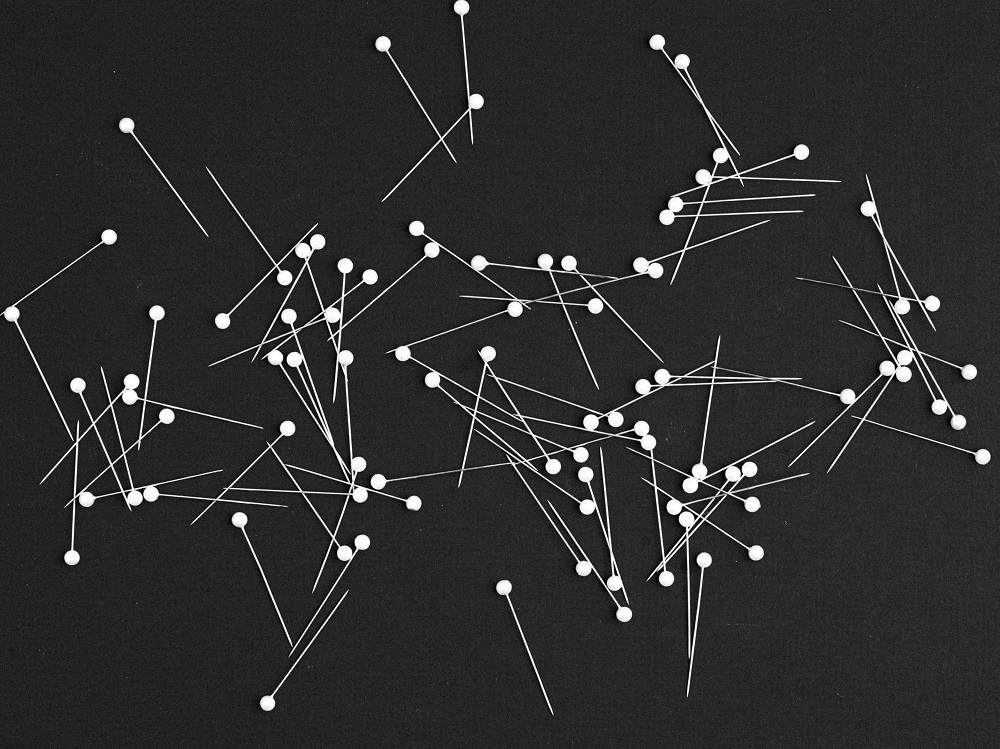The healthcare sector has been undergoing constant transformation, as the industry has been implementing novel systems and processes in line with the digital revolution. This has presented a need to integrate data management systems to flourish in a dynamic business environment and offer patients world-class treatment. The interconnection of big data and healthcare has led to the rise of healthcare data analytics, where data ensures that healthcare organizations are equipped to offer value, efficiency, and care to their patients at affordable costs.
To manage the wealth of data sources and make actionable outcomes along with digital transformation goals, IT leaders are upgrading their infrastructure. Modernizing machines enable organizations to serve up the required data to provide virtual care services for predictive diagnoses. With the right insights, high availability, and compliance requirements, the organization is able to deliver improved patient outcomes.
Read more: Tech-driven Enterprises in 2023: How will Technology Spending Deliver Value?

The Rise of Data Analytics in Healthcare
The industry generates volumes of data but often struggles to store and convert that data into insights to improve outcomes and operational efficiencies. This data can be employed to gain insights and effectively enhance the quality of patient care. Healthcare data analytics assist professionals in improving how medical facilities function by integrating medical data analytics from different sources. The primary objective is to enhance patient care and streamline processes.
Rather than letting data shackle the organization, they harness the data and make it work for the organization. Data analytics in healthcare is helping healthcare providers to overcome obstacles and incorporate the widespread application of data-derived intelligence into their operations.
Benefits of Data Analytics in Healthcare
Today different types and forms of data are merged, and analytics techniques are applied across healthcare settings and public health departments. Health-related data sources include electronic health records, bioinformatics, genomics and post-genomics, medical imaging, sensor informatics, and health informatics. The data analysis incorporates many steps:
-
Integrating heterogeneous data types
-
Ensuring the quality of the data throughout the analysis
-
Creating data models
-
Interpreting the results of the analyzed data
-
Validating the results
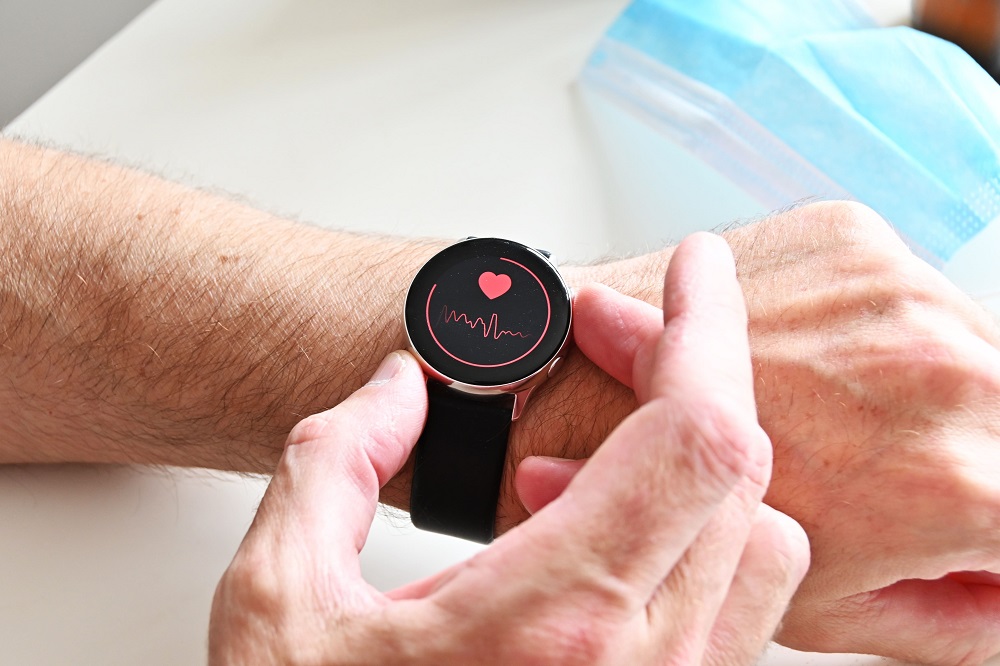
Read more: Emerging Healthcare Technology Outlook 2023
The benefits of data analytics can be categorized across distinct areas, mainly:
-
To support clinical treatment decisions from health professionals.
-
Improving the accuracy and speed of identifying the risk of disease in patients.
-
Offering greater detail in the EHRs.
-
Making healthcare provisions more efficient.
-
Promoting preventive measures by presenting patients with greater insight.
-
Integrate data from fitness devices.
-
Delivering real-time alerts to healthcare providers by analyzing health data.
Integrating Data Analytics in Healthcare Settings
Data analytics in healthcare can be incorporated into every aspect of patient care and operations. It assists in streamlining the methods to improve the provision of clinical care, enhance disease prevention, and measure the effectiveness of different treatments.
Along with organizing, analyzing, and interpreting data, analytics software also helps in securing the accumulated data and analyzing the generated results while ensuring that healthcare professionals can benefit from the insights and have ready access to the data in a form that they can easily work with.

Data analytics equips healthcare organizations with the ability to interpret and convert raw healthcare data into actionable insights, thereby having the greatest impact on different areas of healthcare, including:
-
Research and prognosis of the disease
-
Automation of administrative processes
-
Discovery of new drugs
-
Precise calculation of health insurance rates
-
Effective sharing of patient data
-
Personalization of patient care
Health officials are employing data analytics to improve the prevention of disease and identify patients at risk. They are also incorporating natural language processing systems to analyze unstructured patient data and identify lifestyle factors to associate with high-risk patients.
Read more: Wearable Tech: A Promise to Revolutionize Healthcare
Changing Healthcare Markets with Data Analytics
Today, leveraging the power of data analytics in the healthcare industry has become much more feasible. The goal is to transform data into insightful information and into an actual action plan.
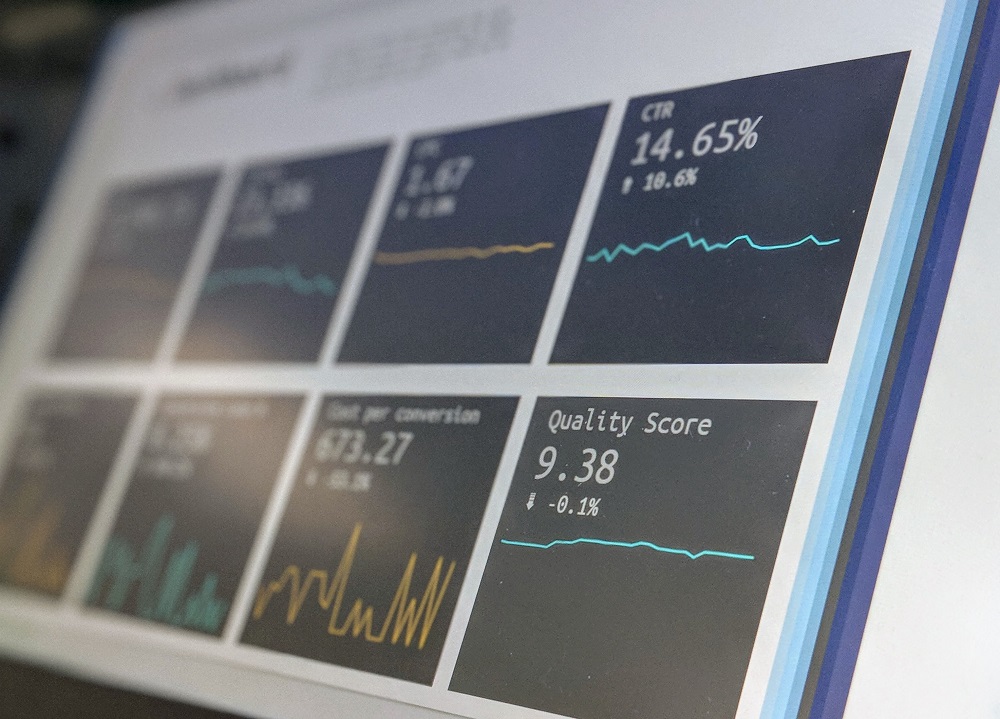
A data-driven organization can make critical decisions based on reliable insights. However, this can happen if the organization has a solid handle on its information assets. When the data is properly curated with sound storage and protection, it can help healthcare systems to contextualize the accumulated information and add resilience to their operations. They can harness the data and make it work for them to become data-driven.
Data analytics is slowly and steadily changing the life sciences industry due to its ability to process volumes of complex data and generate in-depth insights, thus improving the overall ROI for medicine and clinical trials. While the healthcare industry has been on a slow path to incorporating innovative digital technologies, the pandemic compelled companies to make a rapid shift toward digital trends and adopt it in every aspect of their operations.
A Deloitte report highlighted that more than 60% of life sciences companies are investing in artificial intelligence (AI) technologies to make their processes more efficient and to improve their existing products. Health systems are modernizing their data infrastructure and operations to enhance clinical and operational outcomes. Some of the key points that are driving actions are as follows:
-
Demonstrating the Benefits of Cost-Cutting
By leveraging key national statistics, healthcare organizations can demonstrate the need to improve their data visibility and solve challenges such as expired medications, which is a concern for the company's target audience.
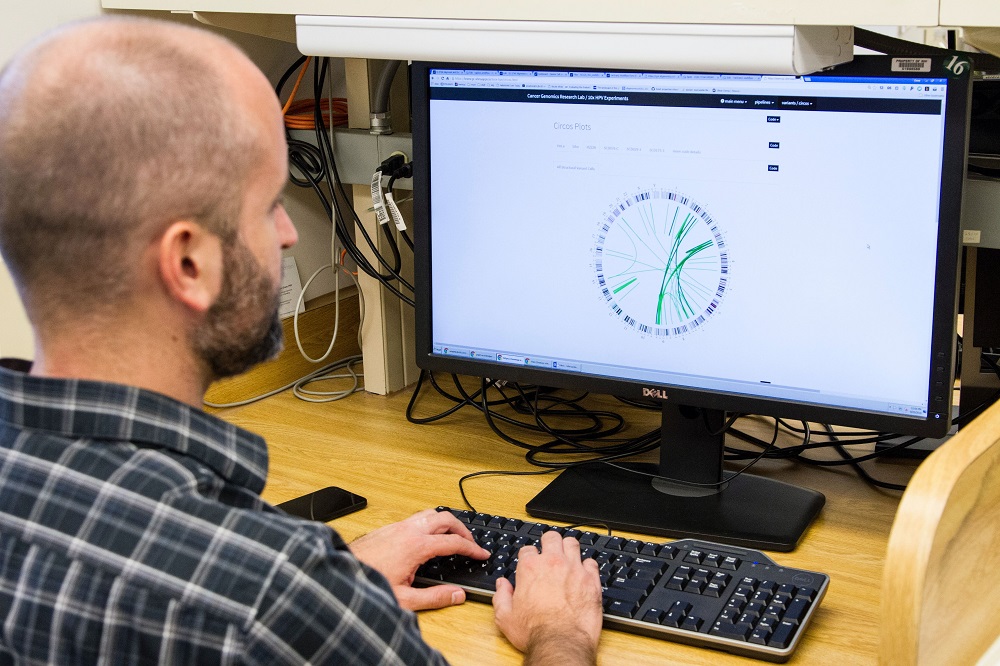
-
Personalizing the Real Challenges
Personalizing the real challenges that a product solves and demonstrating how technology can assist in addressing the issues can be a very effective strategy for the healthcare industry. They can partner with customers and industry experts to leverage data visibility and manage controlled substance accountability through blogs, interactive webinars, and other channels.
-
Leveraging the Value of Digital Transformation
By bringing together relevant leaders from across the industry, healthcare organizations are embracing technology to improve their operations. These professionals are assisting their peers in understanding the value of digital transformation and transitioning from error-prone manual processes to intelligent infrastructure.
-
Optimizing R&D
R&D is a long and complicated process for the healthcare sector. A study reported that only 0.1% of the drugs that start preclinical testing often end up getting approved for human use. At every stage, historical and present data is analyzed to make informed decisions about advancing compounds or removing them. By introducing data analytics in R&D, the healthcare industry can enable fast data processing of volumes of available data to derive focused business outcomes. With analytics in R&D, they can also reduce the development costs by 15% and accelerate the time duration required for approval.
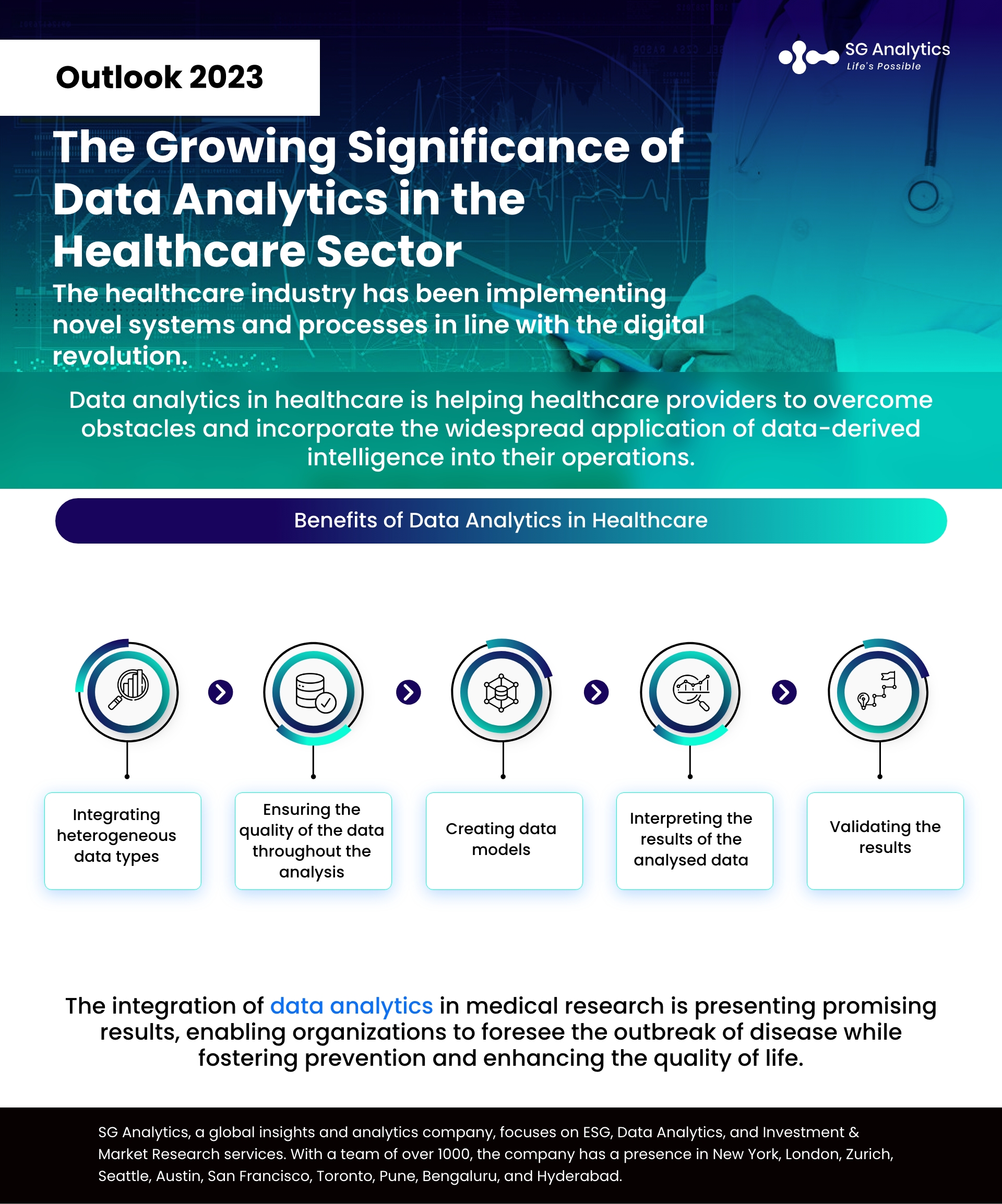
Read more: Reenergizing the Workplace: Ways to Manage and Overcome COVID fatigue
Employing Data Analytics to Advanced Medical Research
Healthcare data analytics connects two of the fastest-growing fields - i.e., healthcare and data analytics. It is no surprise that both sectors are equipping themselves with the right skill set for a successful and rewarding career. The integration of data analytics in medical research is presenting promising results and improving the ability of public health organizations to foresee the outbreak of disease while fostering the prevention of disease and enhancing the quality of life.
Today hospitals have access to a plethora of data insights that can support their treatment decisions. This database is proving to be helpful in treating patients with complex medical histories or multiple conditions. AI-based analytics allow radiologists to read images through integrated algorithms and more accurately identify patterns that signify a particular diagnosis.
With a presence in New York, San Francisco, Austin, Seattle, Toronto, London, Zurich, Pune, Bengaluru, and Hyderabad, SG Analytics, a pioneer in Research and Analytics, offers tailor-made services to enterprises worldwide.
A leader in the Healthcare domain, SG Analytics is assisting healthcare companies in leveraging the power of information. Contact us today if you are in search of efficient Healthcare solutions to make sound business decisions.







